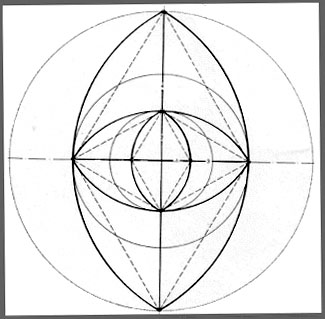 Oh, the crazy imbalances on this planet just tears me up. I know there are endless plights of woe crying for attention but this got to me. When I was first pregnant and wanted to have my baby at home, the challenge of being female in a modern world became a medical issue. Living in a society where technological innovation is the guiding star and our connection to the natural world is pinched off at the root, I had to work my ass off to keep my body and baby from "medical intervention". The key unspoken word here being unnecessary. For those uncommon life-threatening situations that can occur despite careful prenatal care and screening, living in a developed nation is an unequivocal blessing. But I wanted to start out trusting, expecting the best and allowing Nature to do her thing unencumbered. For me that meant saying no to many well meant but overused medical trends.
Oh, the crazy imbalances on this planet just tears me up. I know there are endless plights of woe crying for attention but this got to me. When I was first pregnant and wanted to have my baby at home, the challenge of being female in a modern world became a medical issue. Living in a society where technological innovation is the guiding star and our connection to the natural world is pinched off at the root, I had to work my ass off to keep my body and baby from "medical intervention". The key unspoken word here being unnecessary. For those uncommon life-threatening situations that can occur despite careful prenatal care and screening, living in a developed nation is an unequivocal blessing. But I wanted to start out trusting, expecting the best and allowing Nature to do her thing unencumbered. For me that meant saying no to many well meant but overused medical trends.
No artificial induction. No Pitocin drip to jumpstart contractions, relentless against an unripe cervix, perhaps causing fetal distress and thus requiring, voila...an emergency cesarean! An all too common scenario. No demeaning shave/enema, no hookups to machines that restrain free movement, no laboring prone, no drugs to cloud my experience and my baby's brain, no routine episiotomy, no separation of mama and baby, no formula, no bottles. None of that. This translated for me as no hospital. I wanted to walk through the tall grass in the orchard while laboring and give birth on my own bed, quietly, in the natural light with the windows open. Insisting, intuiting, educating myself, choosing wise support in an experienced midwife, staying grounded and vigilantly slipping out of the grip of cultural fear was a full time effort. I ultimately had my daughter (both of them) naturally and safely at home but as a white American woman of the industrialized West it strikes me as deeply ironic that I felt compelled to resist the medical service that is a symbol of my privileged life. What I saw as meddling in my healthy process could have been a godsend to a women living in desperate conditions halfway around the globe. And that gets to me.
I recently stumbled on a hauntingly poignant documentary that moved me to action. Nova's A Walk To Beautiful deals with the devastating reality of obstetric fistula in Third World countries. If it's not enough being born a woman in a place where hard physical labor is your childhood duty, food is scanty, marriage comes early and childbirth too soon, add another brutal layer to the mix. Physical injury and damage from obstructed labor is common in countries where women are undernourished and thus stunted, their pelvic bones too small to allow the birth of their babies. So not only are their babies often stillborn but the physical outcome is often obstetric fistula, a deterioration or hole between the birth passage and internal organs (often those of elimination) resulting in permanent incontinence of urine or feces. It is an epidemic and literally millions (WHO estimates 2 million) women worldwide, primarily throughout Africa and Asia, suffer from this. Shunned by their husbands, families and communities only because of their foul smell, most exist in heartbreaking isolation, living in tiny makeshift huts or begging on the street. They suffer terrible depression and a debilitating sense of worthlessness. Not surprisingly, many commit suicide. Absolutely tragic.
All the more so because this condition can be remedied in most cases by simply stitching closed the fistula. A $300 medical procedure. The film focuses on the work of Dr. Catherine Hamlin, an Australian woman who in 1974 co-founded Addis Ababa Fistula Hospital in Ethiopia, the world's only hospital exclusively dedicated to offering free treatment to poor women suffering from childbirth injuries. The camera offers an agonizingly intimate view into the lives of a few of these young women as they struggle with utter despair, then discover that thread of hope and follow it (sometimes hundreds of miles) to this hospital haven at the heart of Ethiopia, burgeoning with flowers, bright spaces, clean linens, accepting faces and kindred sufferers. Both harrowing and buoyantly joyful, the film is a beautiful invitation to help our less privileged sisters. I was moved to contribute money to The Fistula Foundation and am now inspired to tithe a percentage of the proceeds from the sale of my artwork to further this needed work.
The film can be viewed in chapters at the PBS site here.
Photo: Wubete, one of the young women in the documentary.


